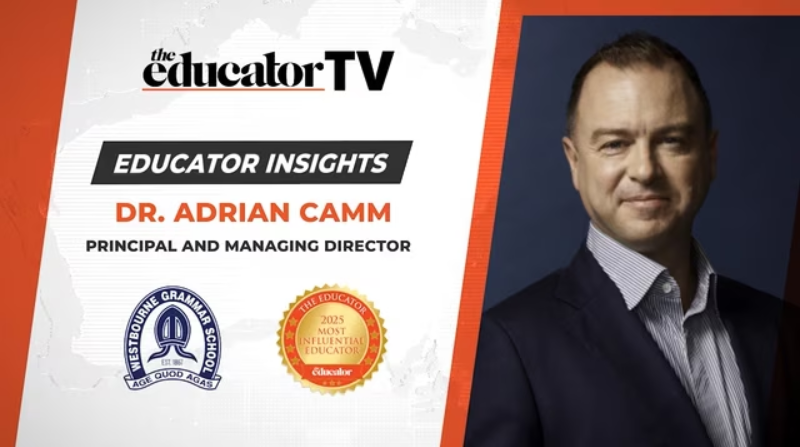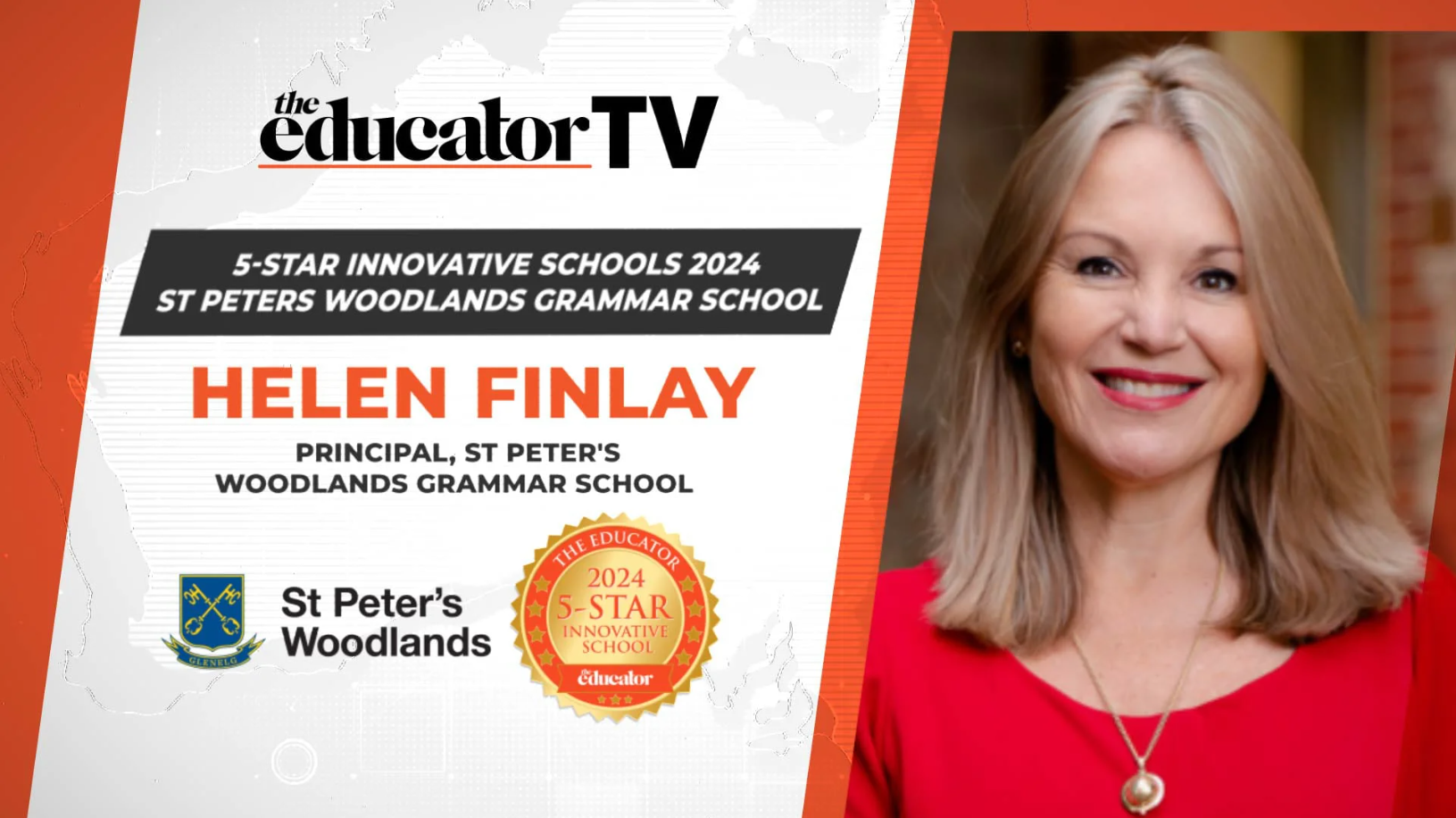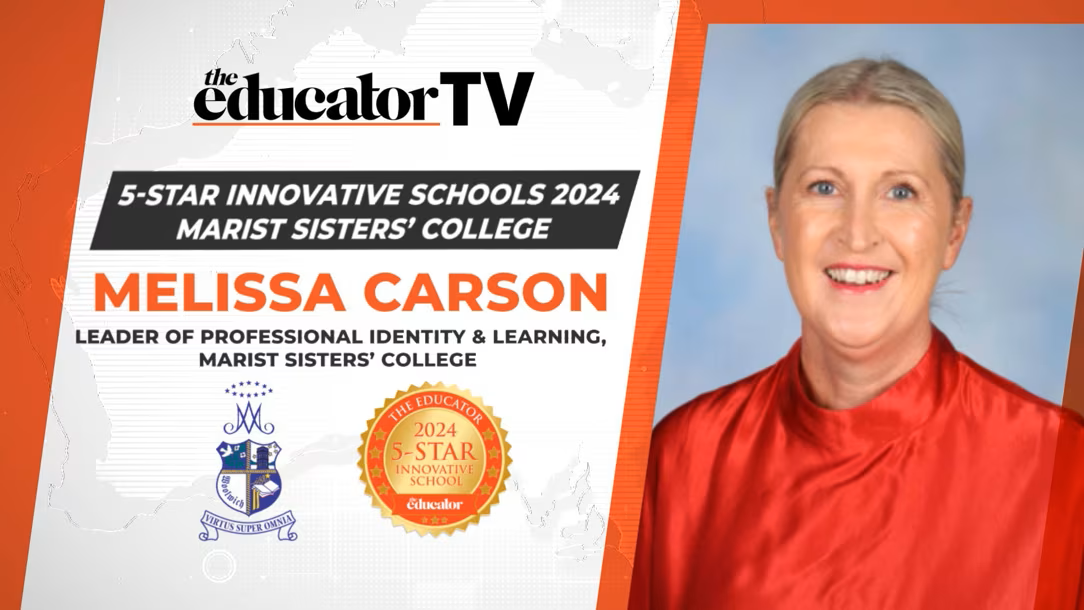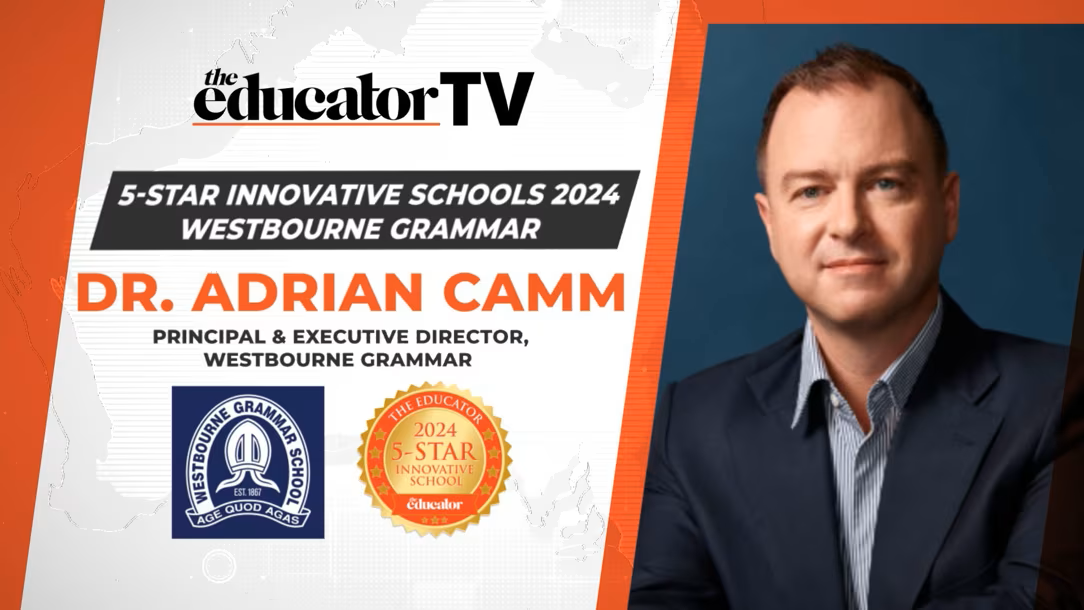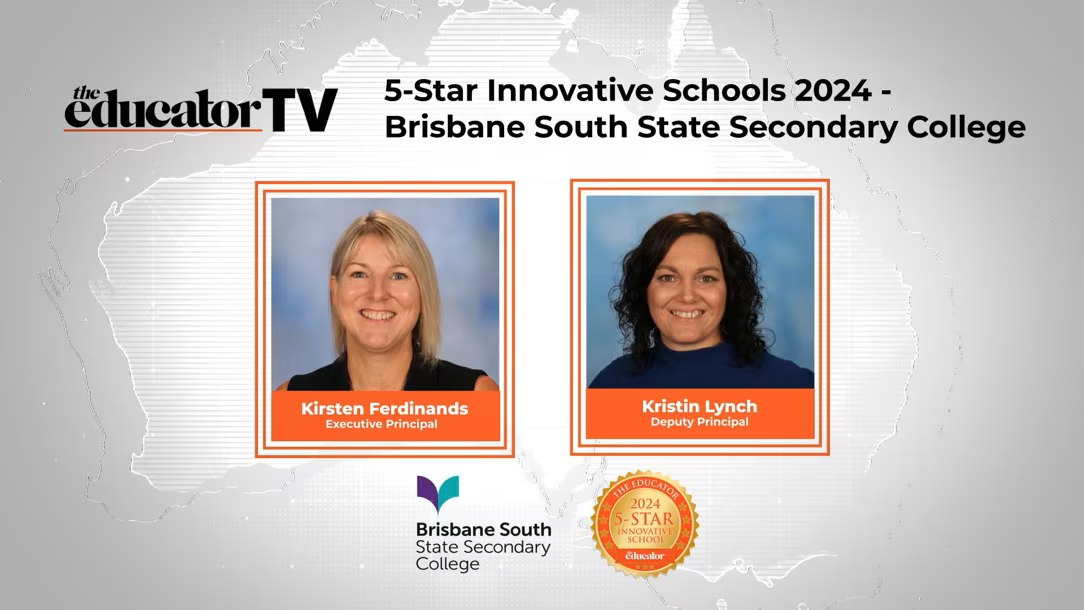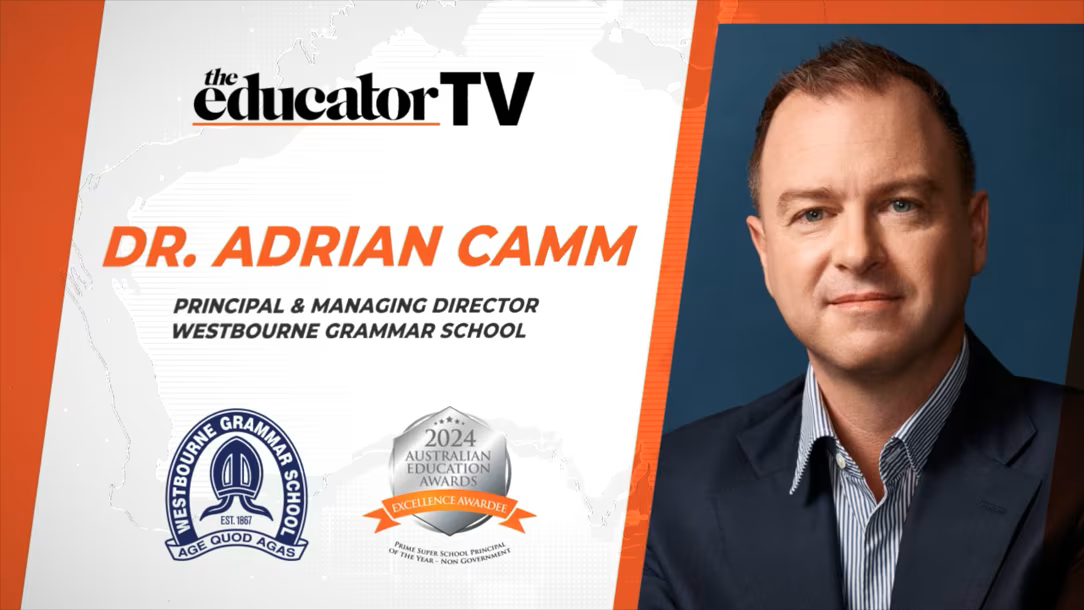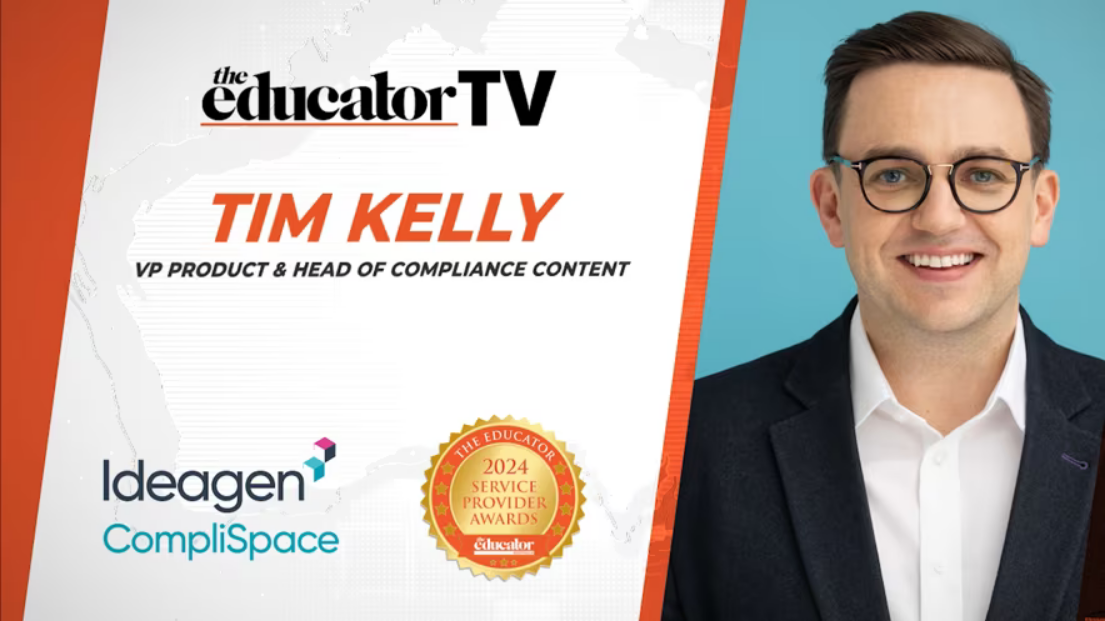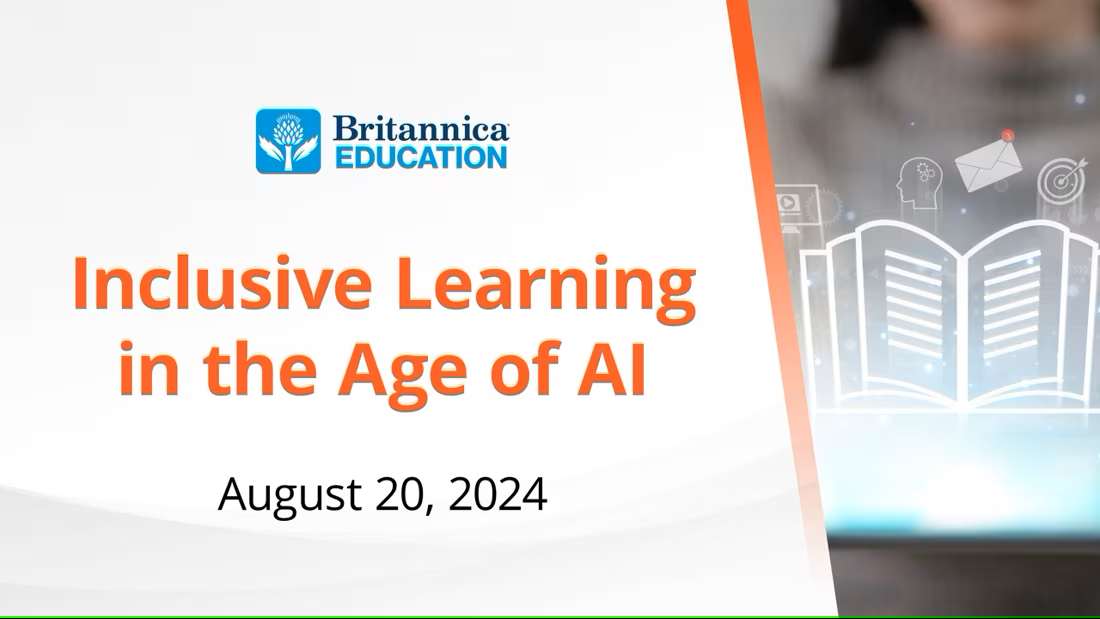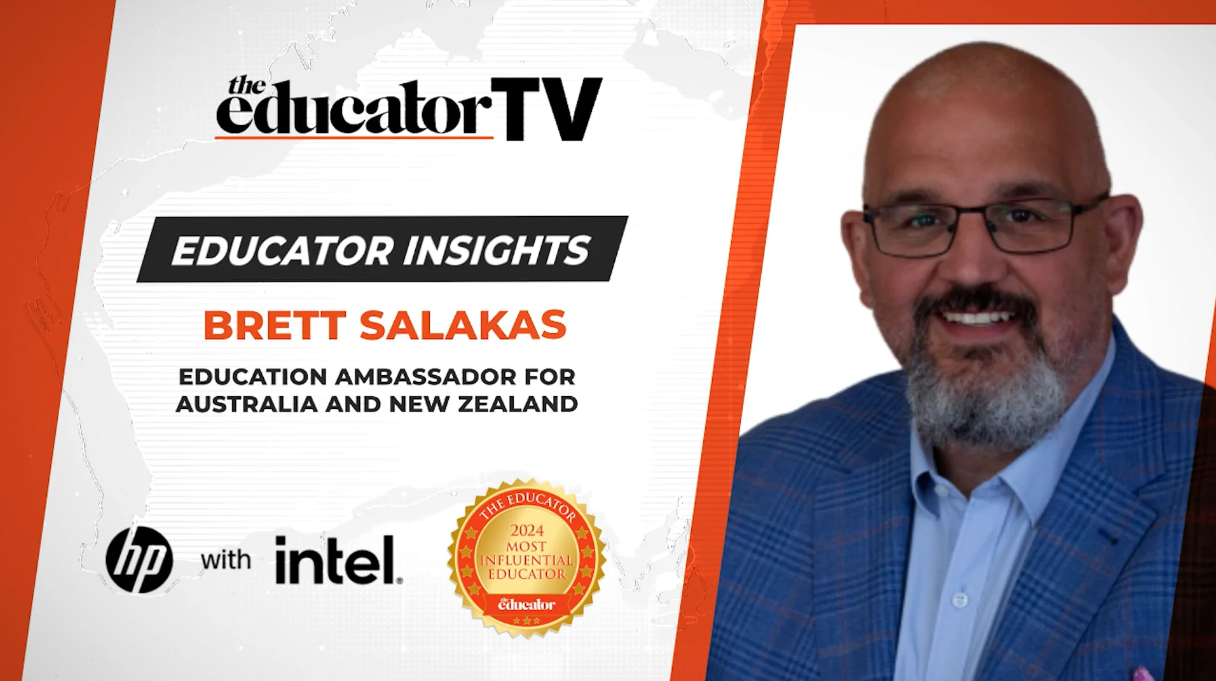What makes an award-winning regional school
While Covid-19 caused upheaval for schools nationwide, regional schools were already doing it rough. But at Fraser Coast Anglican College, steady nerves and a focus on what matters most has helped the school’s community emerge from the pandemic stronger than ever.
To view full transcript, please click here
Kylie: [00:00:13] Hello and welcome to The Educator TV. I'm Kylie Speer, and today I'm talking with Joe Wright, principal at Fraser Coast Anglican College. The college is the Regional School of the Year winner at this year's annual Australian Education Awards 2022. Congratulations to you, Joe, and thank you so much for joining us today.
Joe: [00:00:34] Kylie. Thanks. It was a great honor to receive the award. It was massive here, and I'm very pleased to be able to talk to you today.
Kylie: [00:00:43] Well, firstly, Joe, what have been some of the main challenges for regional education and for Fraser Coast Anglican College over the past 12 months?
Joe: [00:00:52] Well, I think all schools have been struggling with staffing, particularly over the last 12 months, and it's always been a bit difficult in a regional setting with staffing, attracting the staff that you need to the area. I mean, we're lucky we're in Harvey Bay. It's a beautiful area, but still people feel that towards the metro areas. So what we've had to do over the time that I've been here is make sure that we've got a culture that's attracted to people to join our staff, too, so we can also retain our good staff that we have, but they don't want to go. You know, and key to that is I think a lot of teachers or not necessarily teachers I'm talking about staff in general want to be feel part of a community, want to feel like they're making a difference here. We're big on insisting on high standards and staff want to be able to develop their career. They want to feel like there's options and pathway that they're going to grow in your school. And I think key to also attracting and retaining staff is effective leadership. I think it's something schools really have to have at the forefront.
Kylie: [00:02:02] You've mentioned the region. The Fraser Coast region has a low socio economic area with the lowest disposable income per capita in Australia. Yet the college has achieved some truly remarkable academic outcomes. What would you identify as a driving force behind this success?
Joe: [00:02:21] Well, again, staff. That having quality staff makes everything possible and attracting people who see your vision for education, not just staff, but also families. So we really take a holistic approach to education. Yeah, we get great academic results. We're really proud of them and we understand that that opens doors for students and creates a lot of opportunities for them. But if you talk to the staff at the school, that's not all who we are. It's our motto is enriching body, mind and spirit. It's a very Anglican school approach to education where, yeah, the academic results are sort of a payoff from all the other stuff that you're doing around the students. So we have an academic focus that we also have focuses on well being there, pastoral, personal development, growth, soft skills, all those kinds of things. So while we don't expect the students here to be the best at anything, we just want them to do their best. I guess that probably sums up the culture of the school, and I think in that kind of environment it's easier for people to be successful.
Kylie: [00:03:39] So I understand the college has recently collaborated on a new mission and value statement. Can you tell us more about this and how it will influence teaching and learning in 2023?
Joe: [00:03:50] Well, the mission and value statement, the principal couldn't even recite it. So, you know, you've got a problem there. We knew we had to do something with it. Obviously, the community was not connecting with what the missions and values of the school were, so we had to go back to the table and have a look at them. And you needed to have all the stakeholders at the table. So we did have students who are a key part of it, parents that were interested, staff, obviously the college council and the diocese, the Schools commission, they all want to have a say in what you're doing. So you've got all these competing priorities and everyone wants to have their priority in there. But you've got to find a way to work through that and come up with something that encompasses all of it, which we're able to do with working all those stakeholders. Look, it took a while, it took two years, but we were prepared for it to take as long as it takes so that we're happy with what happened, what we got at the end, which as you said, influences everything else in the school. So it's hard to say the mission and values directly affect what's happening in the classroom right now, but they very much guide the direction of the culture. I mean, we theme our terms around each of the values now. So is a focus on it. Our pastoral and character development programs all based around those things. It's about developing those skills and then that just flows through to the classroom, to the teaching and learning over time. You've got to keep working away at it.
Kylie: [00:05:33] That sounds brilliant. And finally, Joe, what kind of year do you anticipate 2023 will be for the college and for regional education more broadly?
Joe: [00:05:43] Things that are going really well at the college year. Our outlook for 2023 for us is very positive. But if you're looking at regional education in general, I think it's going to be a bit of a test next year to see how things pan out because the economic forecast is looking like there's some dark storms on the horizon there. We just had an influx of people move to the regions throughout COVID. Will they stay or they want to go back to the cities or is work from home here to stay? Is it part of the work culture now? And that's going to free up people to move to these beautiful regional areas. And that's, you know, when they come here. One of the first things I do as families is check out the school options in the area. They want options, and it's really important for regional areas to have good schools that are getting great results to attract people to move into the area. And I think our schools be able to do that for our area. I know there's plenty of regional schools out there doing the same. With the new DNI funding. That's been difficult for regional schools. We have to deal with all that. It hasn't been favorable for a lot of schools in the region. So it got all these. Competing demands. And we've got limited resources personally here. FCIC Four or five years ago, we implemented a new business plan that would maximize our use of resources, really prioritize what needed to be done. We've been very disciplined by sticking to it, and it's taken a few years, but it's what it's doing for us is making sure that we can keep the increases at a minimal level, that the families that want to access our school can still do that and that we don't become out of reach for them. And those are the challenges we've got for regional schools across Australia. But regional schools in Australia have a lot to offer and experiences that you can't get in metro areas.
Kylie: [00:07:55] Absolutely. Well, thank you so much for your time today, Joe, and congratulations once again. It was lovely speaking with you.
Joe: [00:08:02] Thank you. The pleasure's all mine. Again, we're very honored to receive the award. And thanks very much for having me on today.
Kylie: [00:08:10] And thank you, of course, to our viewers for watching the latest episode of The Educator TV. We look forward to seeing you again soon.



